IMRE NEWS
A*STAR IMRE Highly Cited Researchers of 2022
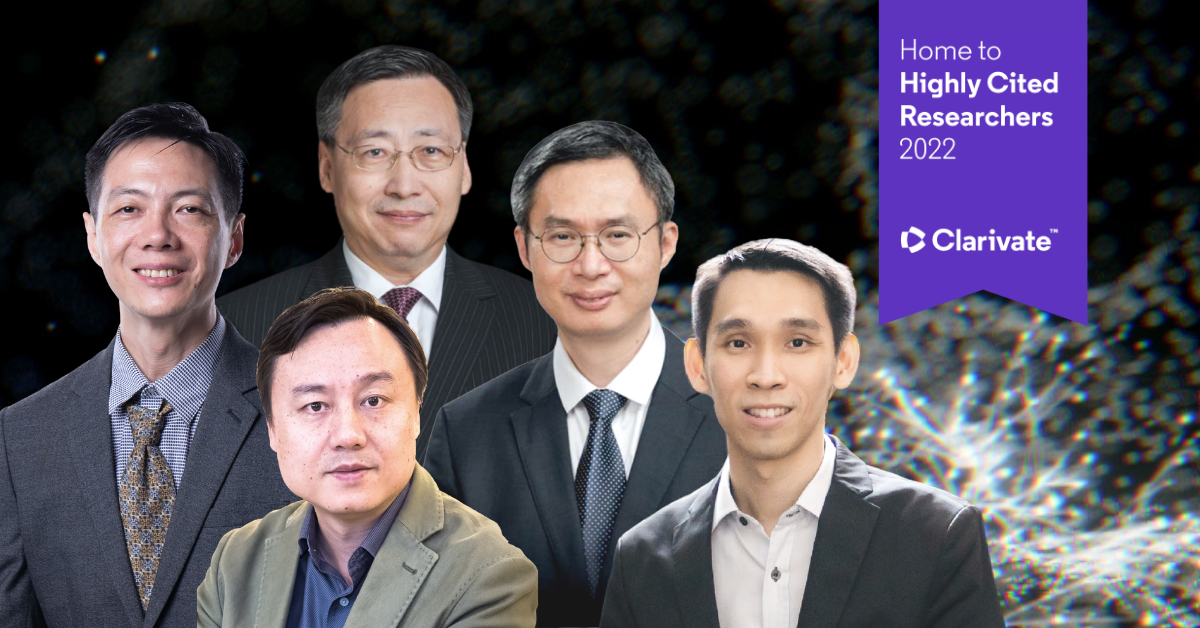
Clarivate's annual list of Highly Cited Researchers™ identifies scientists who have published multiple highly cited papers in the last decade. Their highly cited papers rank in the top 1 per cent by citations for their chosen field or fields and year in the Web of Science™, distinguishing them as hugely influential among their peers.
This year, five IMRE's researchers have been recognised as the world's most influential scientific minds in 2022. We learn more about their work and what drives them to push the frontiers of scientific excellence.
Professor Alex Yan Qingyu
Principal Scientist II
Strategic Research Initiative Department
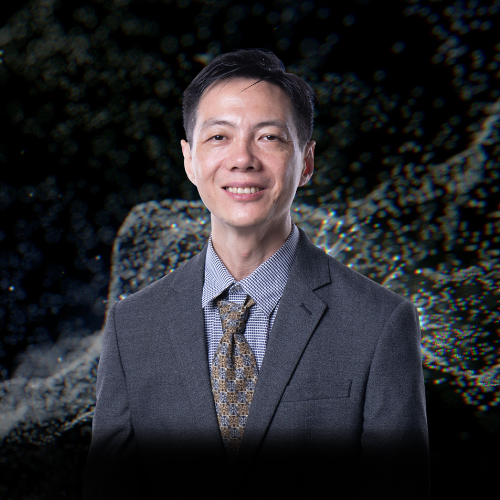
“Currently, lithium-ion batteries (LIBs) dominate the portable powers for electronics and electric vehicles (EVs). However, their sustainability is largely limited by the safety issues associated with flammable organic electrolytes, and the supply shortages of Li resources. The Rechargeable aqueous aluminum metal batteries (AAMBs) are expected to show many advantages compared to the Li ion batteries (LIBs) with higher volumetric energy density, lower cost and better safety. The high abundancy and easy accessibility of aluminum raw materials further make AAMBs appealing for grid-scale energy storage. However, the passivating oxide film formation and hydrogen side reactions at the aluminum anode, as well as limited availability of cathode lead to low discharge voltage and poor cycling stability.
We are working on developing new anode, cathode, and electrolyte for the AAMBs to bring a safe, low-cost and environmentally friendly rechargeable battery, which can meet the rapid increasing demands for energy storage devices”
Professor Alex Yan Qingyu is currently a Professor at the Nanyang Technological University (NTU) and a Principal Scientist II at A*STAR’s Institute of Materials Research and Engineering (IMRE). Professor Yan obtained his BA from the Materials Science and Engineering Department of Nanjing University, China, in 1999. He finished his Ph.D. in the Materials Science and Engineering Department of the State University of New York at Stony Brook in 2004. After that, he joined the Materials Science and Engineering Department of Rensselaer Polytechnic Institute as a postdoctoral research associate until joining Nanyang Technological University in 2007. His current research interests are battery development, thermoelectric materials, and electrocatalytic process for energy conversion.
Professor Chen Xiaodong
Principal Scientist II & Scientific Director
Strategic Research Initiative Department
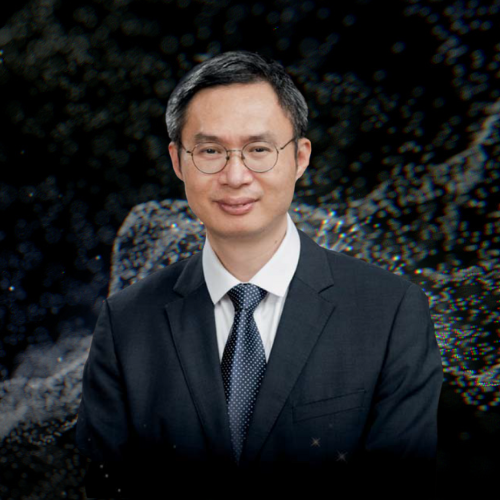
He has created a wide range of soft composite materials for flexible electrodes which have superior stretchability and electronic conductivity. These electrodes can conform and adhere to human skin and animal tissues and are also easily scalable. Through these efforts, he pioneered an emerging field called mechanomaterials, by establishing a method that proactively programs the functionalities of materials by leveraging the force-geometry-property relationships. As a result, he advanced soft bioelectronic interfaces capable of digitising biological senses and extending human sensing capabilities.
So far, he has published more than 380 high-profiled papers and filed/applied more than 40 patents. He is the Editor-in-Chief of ACS Nano, a flagship journal in nanoscience and nanotechnology, and serves as editorial advisory board member for various international journals. He was recognized by multiple prestigious awards and honors including Singapore President’s Science Award and Singapore NRF Investigatorship.
Professor John Wang
Principal Scientist II
Electronic Materials Department
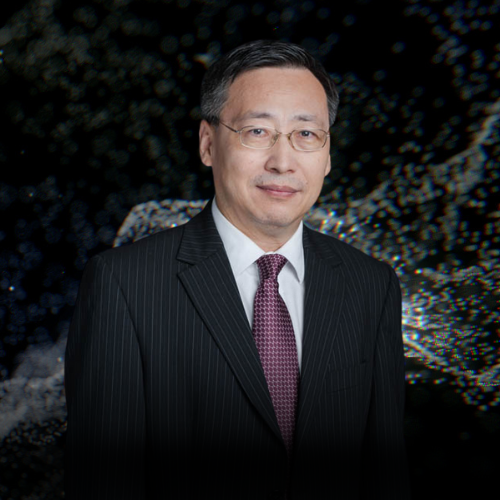
Professor John Wang holds joint appointment as Principal Scientist II in the Institute of Materials Research and Engineering (IMRE), A*STAR. He is Professor of Materials Science and Engineering at the National University of Singapore (NUS). He served as the Head of Department of Materials Science and Engineering at NUS for two terms. Professor John Wang has published >500 papers in prestigious, top international refereed journals, and citations received is >34,000 (H-index = 95). He has been Clarivate Highly Cited Researcher for the past two consecutive years (2020 and 2021). Professor John Wang is elected Academician of the Asia Pacific Academy of Materials (APAM), Fellow of the Institute of Materials, Minerals and Mining (IOM3, UK), Fellow of the Royal Society of Chemistry, Fellow of the Academy of Engineering Singapore, and Fellow of the Singapore National Academy of Science (SNAS).
Professor Liu Xiaogang
Principal Scientist II
Strategic Research Initiative Department
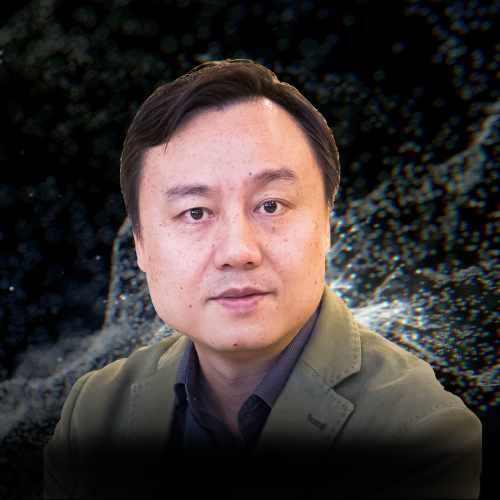
“Various assistive technologies such as voice recognition, eye tracking and brain-computer interfaces have been developed in recent years to help people – especially those with limited dexterity or neurological disorders – control electronic devices. However, these technologies have limitations associated with environmental interference, control accuracy, cost and maintenance.
We are currently developing a smart mouthguard containing integrated pressure sensors to detect occlusal patterns. These patterns are translated into data inputs with 98% accuracy, and can be used to control computers, smartphones and wheelchairs.”
Professor Liu Xiaogang is currently a Professor at the National University of Singapore (NUS) and a Principal Scientist II at A*STAR’s Institute of Materials Research and Engineering (IMRE). Professor Liu’s work on upconversion nanomaterials has inspired many researchers from a broad spectrum of disciplines, including chemistry, physics, materials and life sciences, and biomedical engineering, to join his efforts to expand the upconversion field worldwide.
Professor Liu’s list of accolades include NUS Young Investigator Award (2006), BASF-SNIC (Singapore National Institute of Chemistry) Award in Materials Chemistry (2011), NUS Young Researcher Award (2011), and Royal Society of Chemistry Chemical Society Reviews Emerging Investigator Lectureship Award (2012). He has served on a number of editorial advisory boards, including the Journal of the Chinese Chemical Society, the Chemistry–An Asian Journal, ChemNanoMat, Nanoscale Horizons, and Advanced Optical Materials. Professor Liu was recognised with the President’s Science Award in 2016 for his research on luminiscent, biocompatible nanomaterials, which are used in bioimaging applications such as the tracking of cancer cells.
Professor Liu's research interests are in supramolecular chemistry, materials science, and nanotechnology:
- Developing nanoparticle-based ultrasensitive sensor systems for metal ions and biological molecules Designing novel nanomaterials with high catalytic activity and recyclability
- Synthesising low-dimensional nanomaterials
- Developing lanthanide-doped fluorescent nanoparticle probes
Dr Seh Zhi Wei
Senior Scientist II
Electronic Materials Department
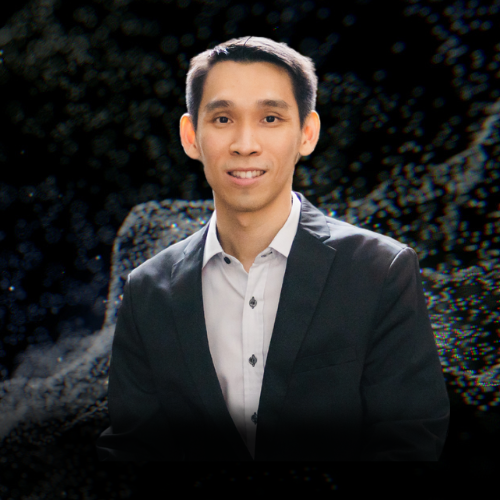
Dr Seh Zhi Wei is a Senior Scientist at IMRE. Dr Seh’s research interests lie in the design of new materials for energy storage and conversion, and he is widely recognized for designing the first yolk-shell nanostructure in lithium-sulfur batteries, which is currently a licensed technology. Dr Seh has published in many top journals such as Science, Science Advances, Nature Energy, Nature Materials, Nature Reviews Materials, Nature Catalysis, Nature Machine Intelligence, Nature Synthesis, and Nature Communications. For his research achievements, he also received awards including Highly Cited Researchers, World’s Top 2% Scientists, Central Research Fund Award, Vebleo Fellow Award, Ten Outstanding Young Persons, Emerging Investigators, Singapore NRF Fellowship, Innovators under 35 Asia, MRS Graduate Student Award, and National Science Scholarship.
Congratulations to all the amazing researchers for their achievements!
For the full list of 2022 Highly Cited Researchers in A*STAR, visit here.
A*STAR celebrates International Women's Day

From groundbreaking discoveries to cutting-edge research, our researchers are empowering the next generation of female science, technology, engineering and mathematics (STEM) leaders.
Get inspired by our #WomeninSTEM
.png?sfvrsn=b59474e9_3)